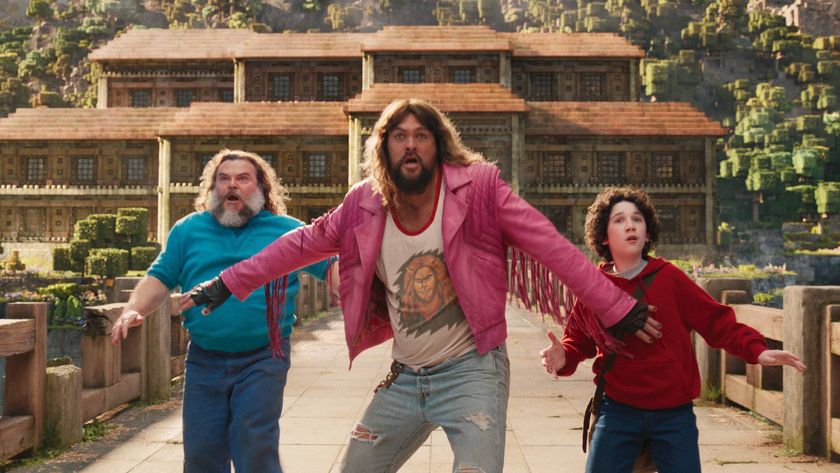Why you can trust 12DOVE
What’s your poison: surfing penguins or Michelin Star-worthy rats? Or an Iranian girl’s growing pains in ’70s Iran and ’80s Vienna? Ratatouille may have scooped the Academy’s vote for ’07’s best animated feature, but Marjane Satrapi’s Oscar-nommed adaptation of her autobiographical comic books offers smartly wry, searching and truthful competition.
Persepolis plots Satrapi’s life through her childhood and teens. As a child in Tehran, she’s believably skittish: initially pro-Shah, she turns virulently anti-Shah when her liberal parents detail the monarch’s crimes. When the Shah is deposed and the Ayatollah Khomeini arrives, though, bad gets worse. Satrapi’s decadent Western revelling in Michael Jackson and Iron Maiden bootlegs is out; the veil is in.
Satrapi’s bolshy, Bruce Lee-fixated, teen-rebel tendencies prompt her parents to pack her off to a French school in Vienna for her own safety. She rebels again there, this time against the “forced nihilism” of Euro brats. But this is less a political treatise than a coming-of-age dip into a girl-turned-woman’s frayed relationship with home and history. If the personal is political and vice versa, Satrapi surfs the choppy waters in between, where nothing is cut and dried.
That character/context balance slices through form and content. Satrapi and her co-director Vincent Paronnaud’s portrait of the artist as a young woman stresses universality via mostly black-and-white 2D traditionalism. It’s easy to recognise Satrapi’s feelings, too, not least when her return to Iran leads to the realisation that home doesn’t feel like home anymore. The specific, often terrifying times she lives through aren’t forgotten, though: rather, they’re viewed through a clear-sighted prism of childlike whimsy and adolescent uncertainty.
The rambling plotting of this tale probably skewed surer in comic-book form. But the diffused momentum arguably suits the subject: that’s teen turmoil for you, heightened here by the troubles of time and place. Her direction might not be certain, but the confidence of this self-portrait proves one thing: Satrapi sure found her creative vocation.
Marjane Satrapi's portrait of a fledgling artist's sensibility forged in exile is both approachably universal and richly, rightly complex. It's also top-drawer animation.
The Total Film team are made up of the finest minds in all of film journalism. They are: Editor Jane Crowther, Deputy Editor Matt Maytum, Reviews Ed Matthew Leyland, News Editor Jordan Farley, and Online Editor Emily Murray. Expect exclusive news, reviews, features, and more from the team behind the smarter movie magazine.

Donkey Kong veteran gives Bananza's character redesign his official seal of approval, praising the new Switch 2 game's look: "It's really ace!"

Former Blizzard boss says it's a "hard pass for me on Switch 2" as he points out its high cost and expresses uncertainty about its performance: "Same low frames, $80 games"

Fire Force season 3 release schedule – when is episode 1 on Crunchyroll and Netflix?










